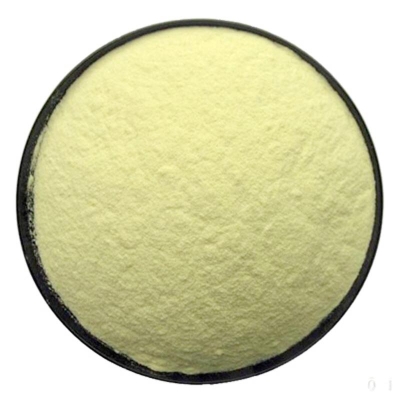-
Categories
-
Pharmaceutical Intermediates
-
Active Pharmaceutical Ingredients
-
Food Additives
- Industrial Coatings
- Agrochemicals
- Dyes and Pigments
- Surfactant
- Flavors and Fragrances
- Chemical Reagents
- Catalyst and Auxiliary
- Natural Products
- Inorganic Chemistry
-
Organic Chemistry
-
Biochemical Engineering
- Analytical Chemistry
- Cosmetic Ingredient
-
Pharmaceutical Intermediates
Promotion
ECHEMI Mall
Wholesale
Weekly Price
Exhibition
News
-
Trade Service
Recently, the resource insect biology and breeding team of the Institute of Honey Bee of the Chinese Academy of Agricultural Sciences analyzed the phosphorylation regulation network during the embryonic development of bee worker bees and male bees, which provided a theoretical basis
for in-depth understanding of the molecular mechanism of bee embryonic development.
The findings were published in Frontiers in Cell and Developmental Biology
.
for in-depth understanding of the molecular mechanism of bee embryonic development.
The findings were published in Frontiers in Cell and Developmental Biology
.
The embryonic development period of bees is an important period for the formation of bee organs, which is of great significance
for the formation of biological characteristics of adult bees.
Phosphorylation of proteins is a common mode of regulation in living organisms and plays an important role in the process of cell signal transduction, but we know very little
about the phosphorylation regulatory network during the development of bee embryos.
Therefore, the team used interdisciplinary research methods in proteomics, bioinformatics and genomics to systematically analyze the phosphorylation regulatory networks that regulate embryonic development, as well as key kinases and regulatory proteins
.
for the formation of biological characteristics of adult bees.
Phosphorylation of proteins is a common mode of regulation in living organisms and plays an important role in the process of cell signal transduction, but we know very little
about the phosphorylation regulatory network during the development of bee embryos.
Therefore, the team used interdisciplinary research methods in proteomics, bioinformatics and genomics to systematically analyze the phosphorylation regulatory networks that regulate embryonic development, as well as key kinases and regulatory proteins
.
During bee embryonic development, we identified a series of phosphorylated proteins and phosphorylation sites and predicted the associated phosphokinases
.
Studies have shown that the overall strategies of worker bees and male bees in the process of embryonic development are similar
.
In newborn embryos, protein kinase A plays an important role
in regulating cell proliferation and germ layer formation.
By the middle of embryonic development, the kinase subfamily bispecific tyrosine modulates kinases, cyclin-dependent kinases (CDK), and induction pathways related to protein synthesis and morphogenesis, supporting
important events such as germplast development, organogenesis, and dorsal cord closure.
By comparing the embryonic development of worker bees and male bees of the same age, it was found that the differentiation of the two formed different regulatory strategies, and these differences coincided with the trajectory of the embryonic development of worker bees and male bees
.
Finally, the key regulatory kinase CAMK2 was functionally verified
by RNA interference technology.
This is the most comprehensive and in-depth bee embryo phosphorylation proteome data to date, which provides a theoretical basis
for the next step of bee embryonic stem cell and transgenic research.
.
Studies have shown that the overall strategies of worker bees and male bees in the process of embryonic development are similar
.
In newborn embryos, protein kinase A plays an important role
in regulating cell proliferation and germ layer formation.
By the middle of embryonic development, the kinase subfamily bispecific tyrosine modulates kinases, cyclin-dependent kinases (CDK), and induction pathways related to protein synthesis and morphogenesis, supporting
important events such as germplast development, organogenesis, and dorsal cord closure.
By comparing the embryonic development of worker bees and male bees of the same age, it was found that the differentiation of the two formed different regulatory strategies, and these differences coincided with the trajectory of the embryonic development of worker bees and male bees
.
Finally, the key regulatory kinase CAMK2 was functionally verified
by RNA interference technology.
This is the most comprehensive and in-depth bee embryo phosphorylation proteome data to date, which provides a theoretical basis
for the next step of bee embryonic stem cell and transgenic research.
The research was supported
by the National Natural Science Foundation of China, the Scientific and Technological Innovation Project of the Chinese Academy of Agricultural Sciences, and the National Bee Industry Technology System.
by the National Natural Science Foundation of China, the Scientific and Technological Innovation Project of the Chinese Academy of Agricultural Sciences, and the National Bee Industry Technology System.
Original link:
This article is an English version of an article which is originally in the Chinese language on echemi.com and is provided for information purposes only.
This website makes no representation or warranty of any kind, either expressed or implied, as to the accuracy, completeness ownership or reliability of
the article or any translations thereof. If you have any concerns or complaints relating to the article, please send an email, providing a detailed
description of the concern or complaint, to service@echemi.com. A staff member will contact you within 5 working days. Once verified, infringing content
will be removed immediately.







